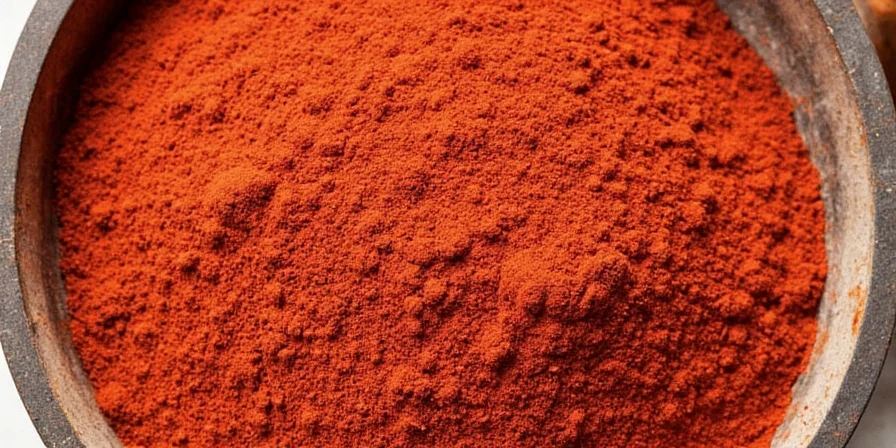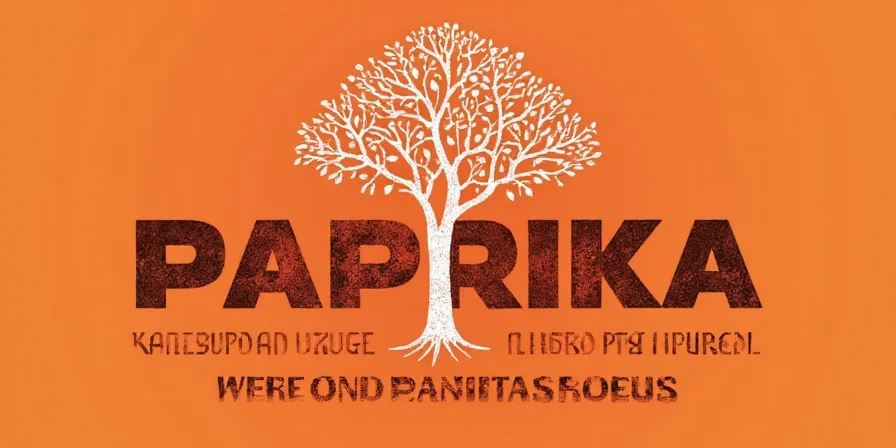The Global Journey of Paprika: A Spice with a Rich History and Flavorful Potential

Origins of Paprika: A Spice with a Deep Root
Paprika, that vibrant red spice that adds both color and flavor to dishes, originates from the Capsicum annuum plant. This plant, which is native to the Americas, was first cultivated by indigenous peoples of Central and South America. However, paprika as we know it today was introduced to Europe by Spanish explorers in the 16th century. It quickly became a staple in many European cuisines, especially in Hungary, where it transformed into the iconic paprika known for its bold, smoky flavor.
While paprika is now used globally, its journey from the New World to the Old has shaped its many varieties and uses. In this article, we’ll explore the origins of paprika, its different types, and most importantly, how to store and use it like a pro.
Understanding the Different Types of Paprika
Paprika is not a one-size-fits-all spice. Depending on the region and processing method, paprika can vary greatly in flavor, color, and heat. Here’s a quick breakdown of the most common types:
| Type | Origin | Color | Flavor Profile | Heat Level |
|---|---|---|---|---|
| Smoked Paprika | Hungary | Deep red to almost black | Smoky, earthy, slightly sweet | Mild to medium |
| Spanish Paprika (Pimentón) | Spain | Reddish-orange | Smoky, slightly sweet | Mild |
| California Paprika | USA | Reddish | Mild, slightly sweet | Mild |
| Hungarian Sweet Paprika | Hungary | Bright red | Sweet, fruity | Mild |
| Hot Paprika | Various | Red | Spicy, peppery | Hot |
As you can see, paprika is a highly versatile spice. Understanding the type you’re using is essential to unlocking its full potential in the kitchen.
Pro Tips for Storing Paprika: Keep It Fresh, Keep It Flavorful
Like all spices, paprika loses its potency over time if not stored properly. Here are some expert tips to ensure your paprika stays as vibrant and flavorful as the day you bought it:
- Store in an airtight container: Exposure to air is the enemy of spices. Make sure your paprika is stored in a sealed container to prevent moisture and air from degrading its quality.
- Keep it cool and dark: Heat and light can cause paprika to lose its color and flavor. Store it in a cool, dark place such as a pantry or spice cabinet, away from the stove and sunlight.
- Use within 6-12 months: Paprika has a relatively short shelf life compared to other spices. For optimal flavor, use it within a year of purchase.
- Don’t mix with other spices: Mixing paprika with other spices can lead to cross-contamination and affect the flavor. Store it separately for best results.
- Freeze for long-term storage: If you have a large quantity of paprika that you won’t use within a year, consider freezing it in an airtight container. This helps preserve its flavor and color for up to two years.
By following these tips, you can ensure that your paprika remains at its peak flavor and color for all your culinary adventures.
How to Use Paprika: From Everyday Dishes to Gourmet Creations
Paprika is more than just a flavor booster; it’s a color enhancer and a flavor enhancer in one. Here are some creative and practical ways to use paprika in your cooking:
1. Use it in meat dishes
Paprika is a staple in many meat dishes, especially in Hungarian and Spanish cuisines. It adds a rich, smoky flavor that pairs perfectly with beef, pork, and even chicken. Try adding a teaspoon of smoked paprika to your ground beef mixture for tacos, burgers, or meatballs.
2. Add it to soups and stews
Smoked paprika is a game-changer in soups and stews. Its deep, smoky flavor can elevate a simple vegetable soup into something truly memorable. Try adding a teaspoon to your tomato-based soups or hearty stews.
3. Use it in sauces and marinades
Paprika is a great addition to sauces and marinades. It adds a subtle sweetness and depth of flavor that works well with both savory and sweet dishes. Mix it into your marinade for grilled meats or add it to your homemade sauce for a rich, smoky flavor.
4. Use it in rice dishes
Paprika can be used to add color and flavor to rice dishes. Try adding a teaspoon of smoked paprika to your rice when cooking for a bold, smoky flavor. It’s especially great in dishes like paella or Spanish rice.
5. Use it in baked goods
Believe it or not, paprika can be used in baked goods. It adds a subtle heat and depth of flavor to things like cookies, cakes, and even bread. Just a pinch can go a long way in adding a unique twist to your favorite recipes.
Common Mistakes to Avoid When Using Paprika
Even though paprika is a versatile spice, it’s easy to make a few common mistakes when using it. Here are some things to watch out for:
- Using too much: Paprika can be overpowering if used in large quantities. Start with a small amount and adjust to taste.
- Mixing types: Mixing different types of paprika can lead to a confusing flavor profile. Stick to one type at a time for best results.
- Using it in the wrong dishes: Paprika works best in dishes where its flavor can shine, such as meats, soups, and sauces. Avoid using it in dishes where it might be overshadowed, like in desserts.
- Not tasting as you go: Paprika can be tricky to balance. Taste your dish as you go and adjust the amount as needed.
By avoiding these mistakes, you can ensure that your paprika is used to its full potential in your cooking.
Conclusion: Embrace the Flavor of Paprika
Paprika is a spice with a rich history and a bold flavor that can transform your cooking. From its origins in the Americas to its current use in cuisines around the world, paprika has proven to be a versatile and flavorful addition to any kitchen. Whether you’re using it in meat dishes, soups, sauces, or even baked goods, paprika has a place in your culinary repertoire.
By storing it properly and using it wisely, you can ensure that your paprika remains fresh and flavorful for all your culinary adventures. So go ahead, explore the world of paprika, and let your taste buds take a journey through the flavors of the globe.

Whether you're a seasoned chef or a curious home cook, paprika is a spice worth exploring. With the right storage and usage techniques, you can bring the world of flavor to your kitchen one dish at a time.
Further Reading (Not Included in This Blog)
If you're interested in learning more about spice storage, usage, and other global spices, feel free to explore further resources. Happy cooking!










 浙公网安备
33010002000092号
浙公网安备
33010002000092号 浙B2-20120091-4
浙B2-20120091-4